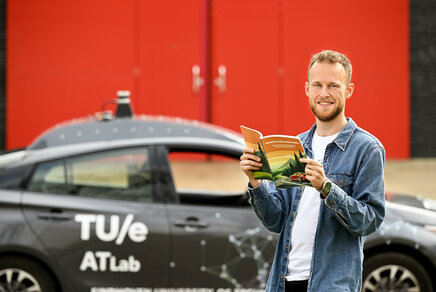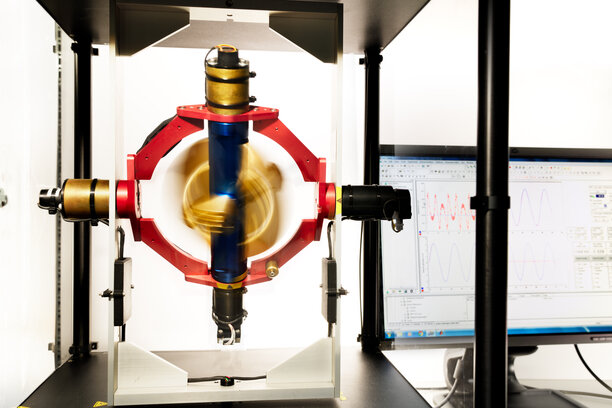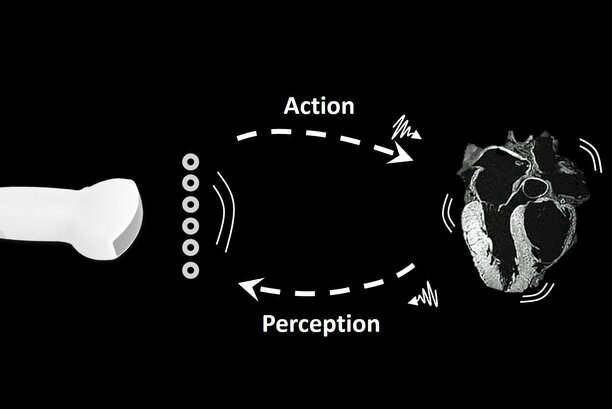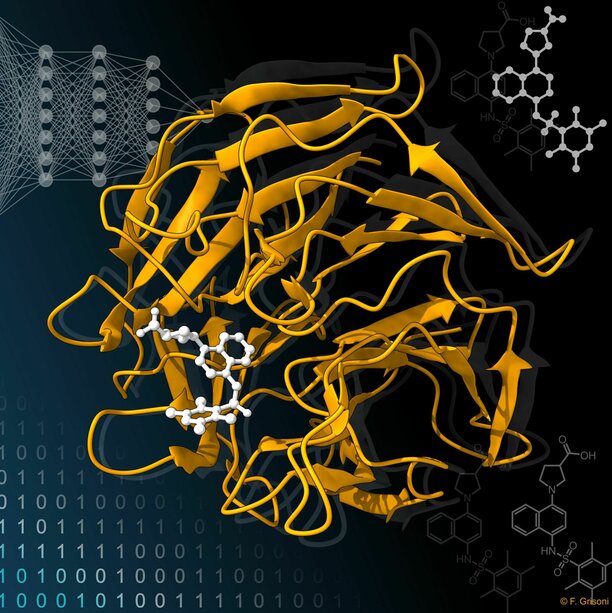Embarking on a new adventure with a huge European grant
Francesca Grisoni, Maarten Schoukens and Ruud van Sloun are all assistant professors at TU/e and the most recent recipients of an ERC Starting Grant.
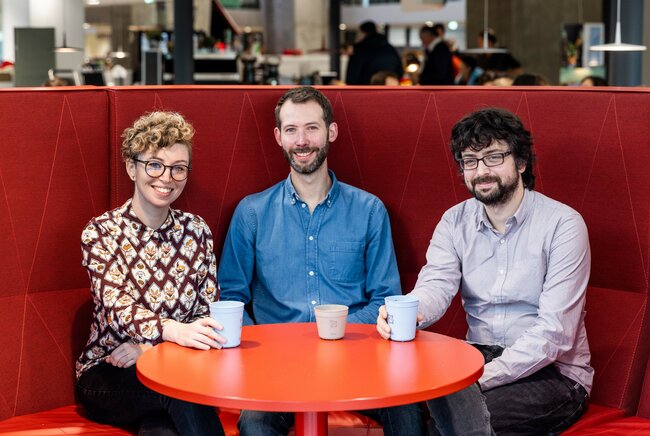
These three young, talented researchers at TU/e are recipients of an ERC Starting Grant. This personal grant will allow them to shape their own research over the next five years. Francesca Grisoni aims to rethink AI for drug discovery. Ruud van Sloun thinks he’s found a novel way of training AI to improve ultrasound imaging. And Maarten Schoukens plans to combine data-driven and physics based systems & control modelling to develop new, hybrid data-driven models. An interview with the three brand new grantees.
ERC Starting Grants are personal grants of 1.5 million euros for five years’ worth of high risk - high gain fundamental research. The recipients of these grants are young, because applying for the grant can only be done within two to seven years after obtaining a PhD. The procedures are strict, the success percentages low, the competition high and the application period limited. Not only the impact of the research but also the impact of receiving an ERC grant on young scientists is big.
This year, no fewer than three young scientists at TU/e got through the selection rounds: Ruud van Sloun and Maarten Schoukens from the Department of Electrical Engineering and Francesca Grisoni from the Department of Biomedical Engineering.
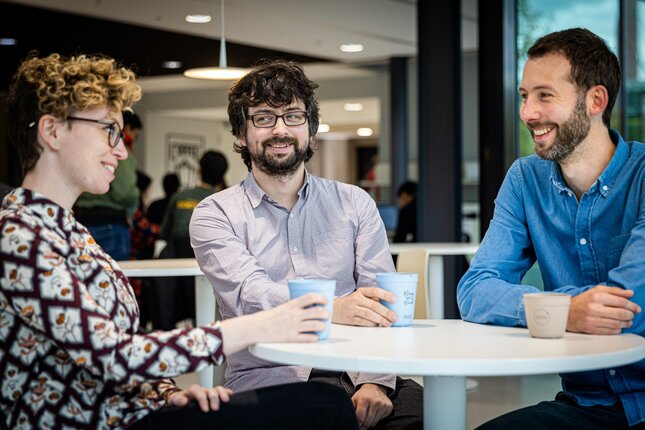
Why did you decide to apply for an ERC Starting Grant?
Ruud van Sloun: “For me it was not yet something I felt I had to do, although I knew I would likely try at least once at some point. I had just taken a kind of mini-sabbatical at the end of 2021. I wanted to get back to the core of my work. What inspires me? What do I want to explore? What drives me? So I took time off and read a lot of scientific publications, including some neuroscience ones, about how the human brain processes and interprets visual information.”
“I got a hunch about how I could do really cool research in my field (AI in image processing, ed.) to use certain insights from biology in our algorithms. Well, and then there is only one go-to institution for funding this kind of fundamental research: the ERC.”
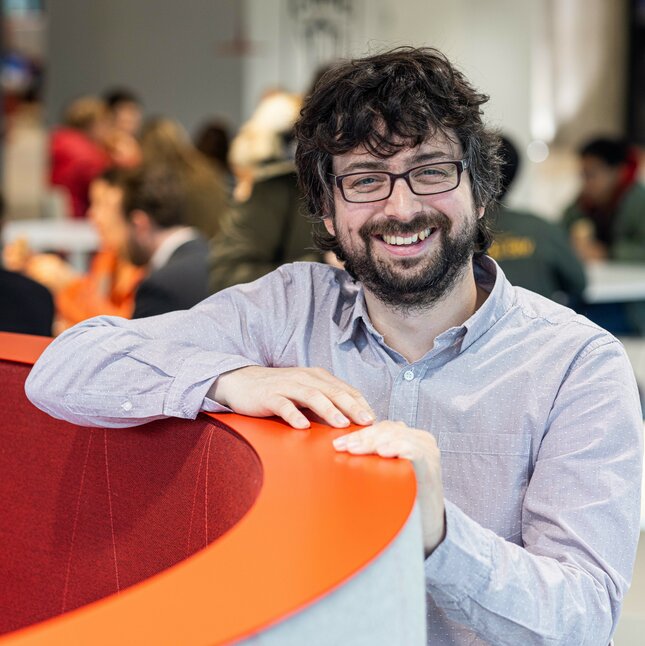
Maarten Schoukens: “In my close circle at TU/e and beyond, there are many researchers who have received an ERC grant at some point in their careers. That is very inspiring. So, I knew I would make at least one attempt to apply for one. For me, the inspiration and ideas for the research in the grant application had to mature. By reflecting on my ideas with colleagues in the team, at conferences and outside the university, my plan then crystallized. A workshop by the Personal Grants Office (PGO) before the summer of 2021 was the start of the process for me."
Francesca Grisoni: “I am passionate, ambitious and driven in my work, which is why I wanted to have enough time to apply twice for an ERC. Indeed, just in case it wouldn't work out the first time. I had just moved to the Netherlands from Switzerland, so I thought it was the perfect time to think about what I really want to do, and work on the application.
“In the beginning, when you have just arrived somewhere, I find that it is comparatively quiet in terms of work. This is the first time I have had my own team so I was still building it and our projects. That gave me enough time to think about my proposal and what truly motivates me in research. I wanted to fully explore the untapped potential of AI to discover medicines. So that's what I made my proposal all about.”
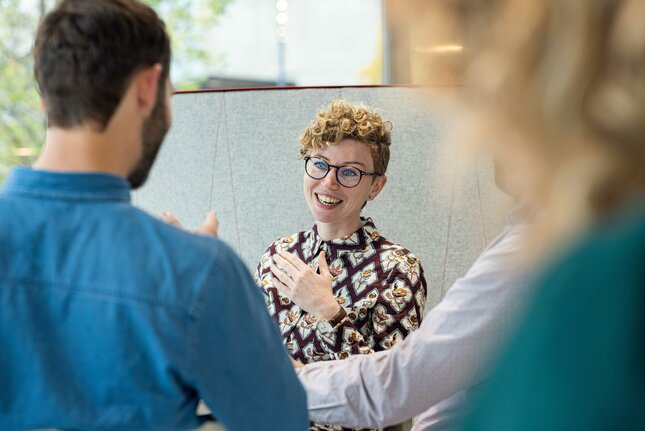
How did you experience the application process?
Maarten Schoukens: “The process is in itself comparable to other personal grants that I applied for in the past. It is a process of thinking, writing and endless rewriting. The PGO has been a great support in this process, because they were able to give very specific feedback on what the reviewing committee will pay attention to.”
“I think it was to my advantage that the ERC focuses more on fundamental research. That made writing much easier for me personally. After the defense, I was quite impressed by the questions I received, but I soon found out that this is perfectly normal. So you'll understand that when I got the news that I'm getting the grant felt like winning a lottery. I was floating a bit during the last few weeks.”
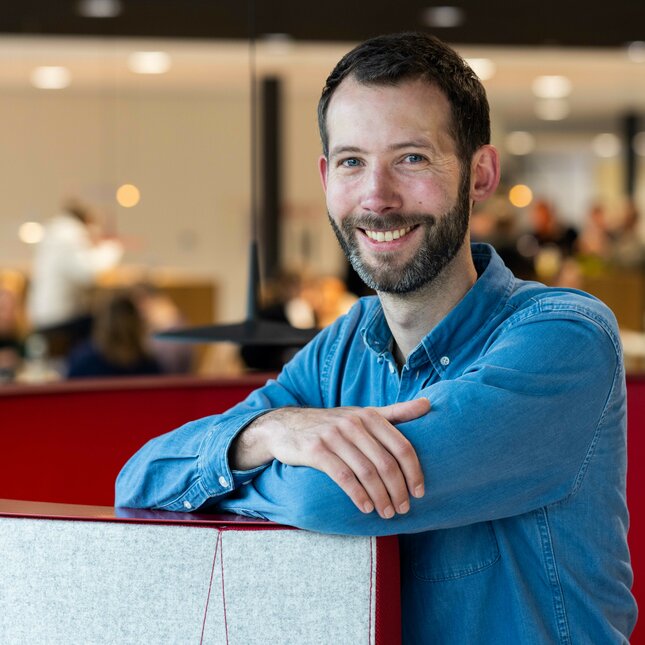
Francesca Grisoni: “Fortunately, I started to work on my idea and proposal in the spring of 2021. That way, I benefited greatly from PGO's workshops and their focused feedback. At the end it's always a final sprint, but I knew this is part of the process. So, actually the process happened as I expected. It has been a great occasion to truly dive into the literature and focus on what drives me as a researcher.”
Ruud van Sloun: “Compared to other candidates, I actually followed a strange process. My first email to the PGO was from early December 2021. Initially, I wasn’t planning on applying for an ERC Starting Grant this soon, but I became so enthusiastic during my mini-sabbatical that I thought to myself ‘Why not?’. The proposal almost wrote itself thanks to the boundaries set by the PGO. ERC is all about fundamental research and hardly about valorization and impact – I have to say, that was a pleasant change.”
“I also got a lot out of preparing for the defense with PGO. After all, it's nice to know what to prepare for. The defense itself was really exhausting, but it was also really exhilarating and an honor to be able to debate my idea, my proposal, with such experienced people from my field."
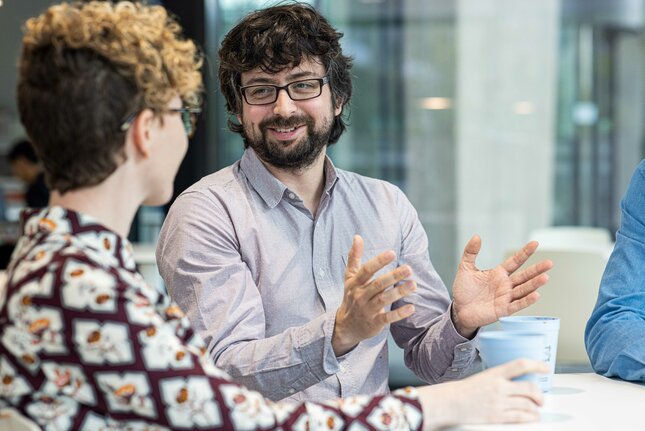
What do you hope to do with this grant?
Francesca Grisoni: “As I mentioned before, I have my first own team here at TU/e. I am really looking forward to expanding that and getting started with the research I have in mind, in complete freedom and with no worries about funding for at least the next few years. It's high risk - high gain research, but I do hope to be able to make real strides that will advance the entire field of AI for drug discovery. Ambitious? Absolutely, but mainly because I think it should be done. It seems wonderful to be able go for it with my team. The next step will be to recruit talented and passionate people to work on this ambition with me.”
Ruud van Sloun: “Well, I had protected myself a bit against the disappointment of not getting the ERC grant. The odds aren’t great and competition is fierce. So, I also started pitching my idea in the department. My colleagues also thought it was cool and so we were already recruiting people to get the research going. Now we will truly have a flying start.”
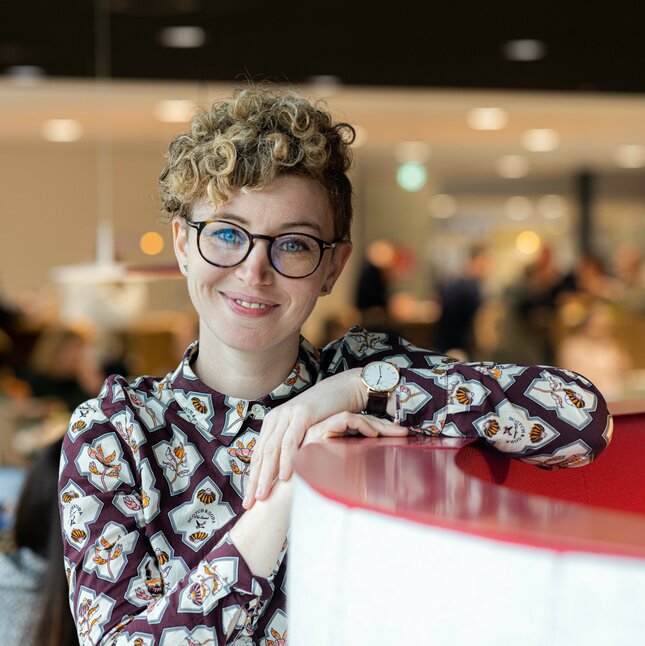
“One of the new colleagues who will be working with me on the research has many years of experience in the industry and will be in charge of the software architecture. This way, we guarantee that each PhD student, and I myself, can start developing pieces of the algorithm, but that in the end it will be part of a coherent whole. With the additional funding and resources provided by the grant, we can really start flying. So yes, I'm really on cloud nine these weeks. Not only is my research getting started, but we're getting a full team AND I can put in a lot of my own time. I am incredibly looking forward to it all.”
Maarten Schoukens: “In every proposal you write, you already set out how you are going to build a team and in what blocks you want to divide the research. So, now that the news is actually officially out, we are going to recruit people. What I want to do is connect the physics-based systems and control models with the data-driven model that I have been working on thus far. This approach will allow me to offer the industry new methods to improve their physics-based models in order to achieve new insights.
“You see, I studied and worked in Brussels before this. At that university I did not collaborate with industry as much as we are used to here at TU/e. That's really unique about our university and our ecosystem. Those contacts allowed me to form this idea and write this plan.”
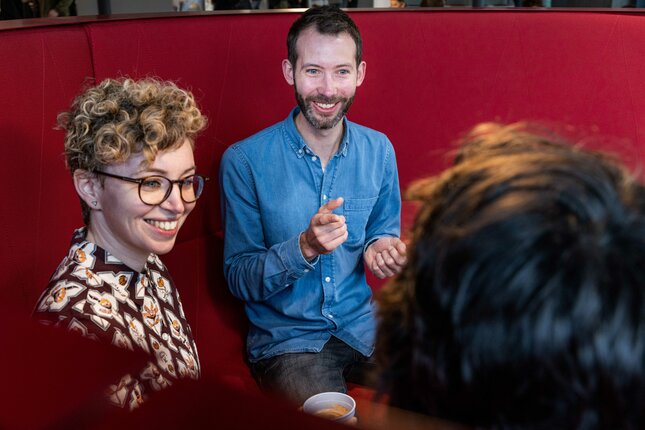
What does getting an ERC Starting Grant mean for your scientific career?
Ruud van Sloun: “Look, I am not naive, this is good for my career and it is fantastic of course. But personally I am especially overjoyed that I get to do the research I dreamed about.”
Maarten Schoukens: “I am very happy with it and honestly would not have dared to dream it. For us scientists there is also such a thing as imposter syndrome. Especially in an environment where many colleagues have already gained similar recognition. That’s what makes it really nice to have a jury of your peers read and judge your work, your project proposal, and say: it is excellent. That touches me in ways other than just being grateful to be able to carry out the research as stated in my proposal.”
Francesca Grisoni: “There are many layers to receiving a grant like this. The professional layer, and what it does for future opportunities. But for me, above all, it means one thing: freedom. Freedom in every way. Free to set up the research as you see fit, free to hire good people, free to explore high-risk applications, free from the pressure of having to chase funding again for the next few years. Free to really dive into the work and do the research you are passionate about with your team. That's what you're a scientist for, right?”
Personal Grants Office
Any researcher at TU/e who wants to apply for a grant can rely on the Personal Grants Office for guidance and support. It offers workshops to prepare for the application process and to gain focus in the proposal ideas. Additionally, it provides tailored feedback during the writing of the proposal, specifically geared towards the type of jury who will be judging its contents. Last, but certainly not least, it will prepare the candidates for the defense of their proposal.
https://www.tue.nl/werken-bij-tue/wetenschappelijk-personeel/personal-grants/
TU/e employees can find more information on the TU/e intranet
Latest news
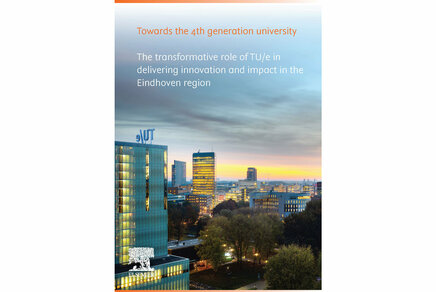
![[Translate to English:] [Translate to English:]](https://assets.w3.tue.nl/w/fileadmin/_processed_/e/6/csm_Hendriks%20Banner%20image%20Photonic%20crystal%20fiber-tip%20sensor%20BvOF_9b4093b84b.jpg)
